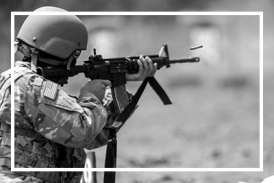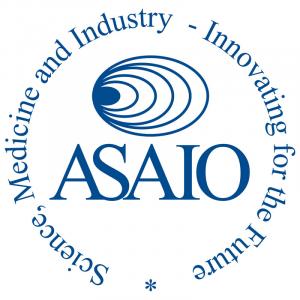Dr. John Watson Named Recipient of the Vishnu Ingle Lifetime Achievement Award
The award will be given at ASAIO’s Annual Meeting in New Orleans, where colleagues, former students, and collaborators will gather to celebrate Dr. Watson’s career and profound impact. In receiving the award, Dr. Watson stated: “I’m deeply humbled by this honor, which I share with the many colleagues, students, and family members who have supported me throughout my personal Faith journey. This award belongs to all of them.”
Dr. Watson’s remarkable career spans over five decades and includes leadership roles in industry, academia, and government, that have combined to shape his work in the evolution of artificial organs from concept to clinical reality.
Dr. Pramod Bonde, MD, FACS, ASAIO Past-President and ASAIO Journal Editor-in-Chief, commented, “Dr. Watson's remarkable contribution to the MCS field by his leadership at NHLBI and his monumental influence in directing the policies of NIH and FDA played an instrumental role in the development of LVAD systems which has benefited countless patients and families by extending their lives. His efforts will continue to shape the future of MCS field in the future decades”.
Career Chronological Highlights:
• Industry (10 years): Engineering work in power generation, business machines, and aircraft—contributing to innovations like the XC-142 Thrust Control System and failsafe systems for military aviation (A-7 Corsair II).
• Southwestern Medical School (10 years): Bridged engineering and physiology as an instructor and researcher, helping pioneer early use of intra-aortic balloon pumps (IABP) for heart failure management.
• National Heart, Lung, and Blood Institute (28 years): Served in roles including Chief of the Devices and Technology Branch and Acting Deputy Director. There, Dr. Watson conceived and led the multi-phase development of long-term mechanical circulatory support systems as viable alternatives to heart transplantation.
• UC San Diego (20 years): Continued advancing bioengineering design education, innovation, and student service beyond the classroom.
Dr. Watson played a critical leadership role in the development and clinical translation of left ventricular assist devices (LVADs), from the first-generation HeartMate I (used in the landmark REMATCH trial), to the second-generation HeartMate II, and the third-generation HeartMate 3. His efforts laid the foundation for the modern LVAD field and helped establish national programs like INTERMACS, the primary registry (47,000) for post-implant outcomes.
Beyond device development, Dr. Watson influenced key NIH and FDA policies, including the expansion of the Small Business Innovation Research (SBIR) program and the implementation of FDA guidance documents, improving regulatory clarity for medical device developers. He also chaired the 2003 NIH Conference that led to allowing Multiple Principal Investigators on NIH grants, a pivotal change for interdisciplinary bioengineering research.
Lasting Legacy:
Dr. Watson's work has not only saved lives but has reshaped how heart failure is understood and treated. Today, as the field moves toward therapies that promote cardiac recovery, Dr. Watson remains active in fostering collaboration between engineers, clinicians, and scientists. Conferences like U-CARS and the Assisted Circulation Gordon Conference, which he encouraged or helped found, continue to inspire new generations of researchers.
ASAIO is proud to recognize Dr. Watson's extraordinary career and enduring legacy in artificial organ science and engineering.
About ASAIO:
The American Society for Artificial Internal Organs is dedicated to the advancement of technologies that replace or assist organ function. Through research, collaboration, and education, ASAIO supports the development of lifesaving artificial organ systems and fosters innovation in internal medicine and surgery.
ASAIO
ASAIO
+ +1 978-927-8330
email us here
Visit us on social media:
LinkedIn
X
Legal Disclaimer:
EIN Presswire provides this news content "as is" without warranty of any kind. We do not accept any responsibility or liability for the accuracy, content, images, videos, licenses, completeness, legality, or reliability of the information contained in this article. If you have any complaints or copyright issues related to this article, kindly contact the author above.
Cloud Microservices Market Growth Accelerates as Demand Surges Across Key Industries
AlArabia Wins 'Best OOH Company – Saudi Arabia 2025' by International Business Magazine
With Evolved Offerings, Viable Synergy Strengthens Commitment to Practical & Effective AI Adoption for Visionary Leaders
Więcej ważnych informacji
 Jedynka Newserii
Jedynka Newserii

 Jedynka Newserii
Jedynka Newserii

Polityka

D. Joński: Nie wiemy, co zrobi Rosja za dwa–trzy lata. Według duńskiego wywiadu może zaatakować kraje nadbałtyckie i musimy być na to gotowi
Zdecydowana większość krajów unijnych wskazuje na potrzebę wzmocnienia zdolności obronnych Europy w obliczu coraz bardziej złożonego geopolitycznego tła. Wywiady zachodnich państw wskazują, że Rosja może rozpocząć konfrontację z NATO jeszcze przed 2030 rokiem. Biała księga w sprawie obronności europejskiej „Gotowość 2030” zakłada m.in. ochronę granic lądowych, powietrznych i morskich UE, a sztandarowym projektem ma być Tarcza Wschód. – W budzeniu Europy duże zasługi ma polska prezydencja – ocenia europoseł Dariusz Joński.
Transport
Duże magazyny energii przyspieszą rozwój transportu niskoemisyjnego w Europie. Przyszłością może być wodór służący jako paliwo i nośnik energii

Zmiany w europejskim transporcie przyspieszają. Trendem jest elektromobilność, zwłaszcza w ramach logistyki „ostatniej mili”. Jednocześnie jednak udział samochodów w pełni elektrycznych w polskich firmach spadł z 18 do 12 proc., co wpisuje się w szerszy europejski trend spowolnienia elektromobilności. Główne bariery to ograniczona liczba publicznych stacji ładowania, wysoka cena pojazdów i brak dostępu do odpowiedniej infrastruktury. – Potrzebne są odpowiednio duże magazyny taniej energii. Przyszłością przede wszystkim jest wodór – ocenia Andrzej Gemra z Renault Group.
Infrastruktura
W Polsce w obiektach zabytkowych wciąż brakuje nowoczesnych rozwiązań przeciwpożarowych. Potrzebna jest większa elastyczność w stosowaniu przepisów

Pogodzenie interesów konserwatorów, projektantów, inwestorów, rzeczoznawców i służby ochrony pożarowej stanowi jedno z największych wyzwań w zakresie ochrony przeciwpożarowej obiektów konserwatorskich. Pożary zabytków takich jak m.in. katedra Notre-Dame w Paryżu przyczyniają się do wprowadzania nowatorskich rozwiązań technicznych w zakresie ochrony przeciwpożarowej. W Polsce obowiązuje już konieczność instalacji systemów detekcji. Inwestorzy często jednak rezygnują z realizacji projektów dotyczących obiektów zabytkowych z uwagi na zmieniające się i coraz bardziej restrykcyjne przepisy czy też względy ekonomiczne.
Partner serwisu
Szkolenia

Akademia Newserii
Akademia Newserii to projekt, w ramach którego najlepsi polscy dziennikarze biznesowi, giełdowi oraz lifestylowi, a także szkoleniowcy z wieloletnim doświadczeniem dzielą się swoją wiedzą nt. pracy z mediami.






![Nestlé w Polsce podsumowuje wpływ na krajową gospodarkę. Firma wygenerowała 0,6 proc. polskiego PKB [DEPESZA]](https://www.newseria.pl/files/1097841585/fabryka-nesquik_1,w_85,r_png,_small.png)




.gif)

 |
| |
| |
|